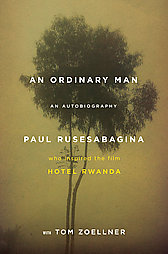
In the mid 1800’s, a British explorer’s theory evolved into the 1994 genocide in Rwanda, Africa. The first white man to see Lake Victoria, John Hanning Speke, claimed the two tribes in the Rwanda region were direct descendants from the Bible.
Speke theorized the Tutsis were a lost Christian tribe from the Middle East. The Tutsis were a thin-nosed, tall race, who ate beef and drank milk. They immediately escaladed from poor tribe to royal subjects with this new knowledge.
Their counterparts, the Hutus, were direct descendants of Noah’s son, Ham. As the Genesis story goes, Ham is forced into servitude for his sins against Noah. The Hutus, described as farmers, short and stocky in stature with wide noses, became overnight un-successes. They went from independent providers to dumb animals in need of a master.
In reality, one could not tell a difference in the races, because one didn’t exist. Speke saw an opportunity to pontificate his claims and consequently weighed one group against the other. A person today would merely assume the cattle-owning Tutsis benefited from better nutrition.
As the years progressed, the Tutsis became tyrant leaders. They believed themselves special and entitled to more of Rwanda’s resources. Since they owned the cows, they needed more land to support them. The Tutsis spread their claim; and an economic divide, as well as social, began to form.
On April 6, 1994, a huge explosion rocked the capital city of Kigali, Rwanda. Tatiana called her husband in fear, begging him to return to their home. Her husband, Paul, was manager of the premier Rwandan Hotel Diplomate. Paul was also a Tutsi and his wife Tatiana a Hutu.
As he rushed home he noticed civilians, even his neighbors and their children, sporting uniforms and machetes. The car radio exclaimed, “Do your work. Clean your neighborhood of brush. Cut all the tall trees.”
An Ordinary Man is the autobiography of Paul Rusesabagina and his experience in the 100-day revolt. A horrendous 850,000 Rwandans lost their lives. Paul, living in the very hotel used as Hutu headquarters, kept 1,268 Tutsis in the hotel alive through verbal reasoning. This incredible story is the basis for the 2004 movie, Hotel Rwanda.
My Mission...Not Impossible...Make Mississippi Read!
Wednesday, November 15, 2006
An Ordinary Man (copy)
Subscribe to:
Post Comments (Atom)



2 comments:
Wow, that sounds like quite an interesting book. Thanks for posting about it!
lesley, you will be horrified at the amount of killings. The population of the City of Memphis is around 650,000. 850,000 men/women/children lost their lives in little than 100 days in Rwanda's race war. It's nuts. I booktalked it to one of our English teachers hoping she would add it to her reading list. It's that good.
Post a Comment